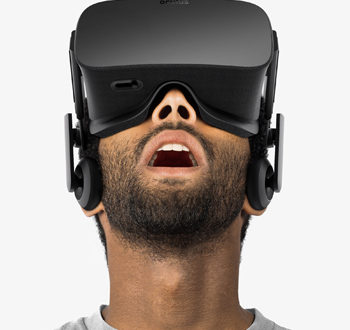Virtual reality is a burning topic in the tech market right now. You can’t move for VR-related announcements from E3 this week.
Worldwide shipments of VR hardware is expected to reach 9.6 million this year, but not all of this equipment will be sold to gamers.
Data centre environment provider Aegis Data recently detailed how the use of virtual reality technology will help data centre operators visualise environments in the planning and building stages.
Greg McCulloch, CEO at Aegis Data explained how VR will help shape the data centre market: “When acquiring a site or planning to upgrade an existing one to meet the demands of growing technological advances such as VR and high-performance computing (HPC), it is important for data centre operators to visualise the space required. While the naked eye is unable to analyse the capacity of a site, VR headsets have the ability to accurately capture the true essence of where cabinets, racks and data halls will be positioned in a data centre environment.
“Another key aspect of using VR technology in the data centre is also its ability to help both existing and potential new customers understand the space that they are buying into. For the sales team in particular, this provides a competitive edge over other players in the market, as they are able to effectively show customers a site, in another country for example, without leaving the confines of the office, leading to huge cost savings,” he said.
The idea of using VR during the building and planning of a data centre environment follows on from other businesses uses we’ve seen over the past year or so, including the influx of real estate agencies at events like the Wearable Technology Show, which showcased how headsets can be used to guide potential homeowners around houses that may not have even been built yet.
But another use for VR – and one that’s a little closer to my own heart – was brought to my attention this week by MCV’s online editor Ben Parfitt.
In a fantastic case study, Ben detailed how his wife, Libby, was using virtual reality to sample some of the experiences that have been robbed from her after developing a condition called Complex Regional Pain Syndrome which on some days leaves her struggling to get out of bed, let alone out of the house.
Aside from experiencing things like scuba diving without the need to leave the living room, what I found even more amazing was the fact that Ben discovered that VR could potentially be used to actually help Libby recover from her accident.
“One element of Libby’s condition is the effect on the brain’s neuroplasticity. As a result of the pain, the wiring of the brain physically changes, with pain associations cropping up where they should not. For her, just thinking about walking, or even simply looking at pictures of legs, can cause a strong enough mental association for it to trigger a pain response,” he explained.
“A VR experience that simulates walking, therefore, did indeed have the expected pain response. But that isn’t a reason to stop. On the contrary, there is likely much therapeutic merit to increased exposure to such experiences, as doing so could be a start to correcting some of the brain’s faulty wiring.”
Libby added: “I’ve tried mirror box therapy, which tricks the brain by placing your good limb into a mirrored box so you see a direct reflection, which looks like your bad limb. Moving the good one then tricks the brain into seeing the bad one moving. The premise is you fool your brain into thinking the bad limb is moving normally and happily. VR could be used for this very well. It could be very effective.”
My own partner’s mother suffers from MS, and therefore has days when it’s much more difficult for her to get out and about. She also has a thirst for knowledge and loves reading and learning about different countries and cultures around the world.
While getting a cab to an airport, walking to the right gate, getting on and off a plane, and then navigating your way around a foreign city might seem like no trouble at all for most people, for someone with MS, it can feel like an impossible feat.
Aside from giving her the opportunity to visit any city she wanted from the comfort of her own home, a VR program to help my partner’s mother, Ben’s wife or anyone with a disability to become more mobile will be THE greatest application for virtual reality.
 PCR Tech and IT retail, distribution and vendor news
PCR Tech and IT retail, distribution and vendor news


